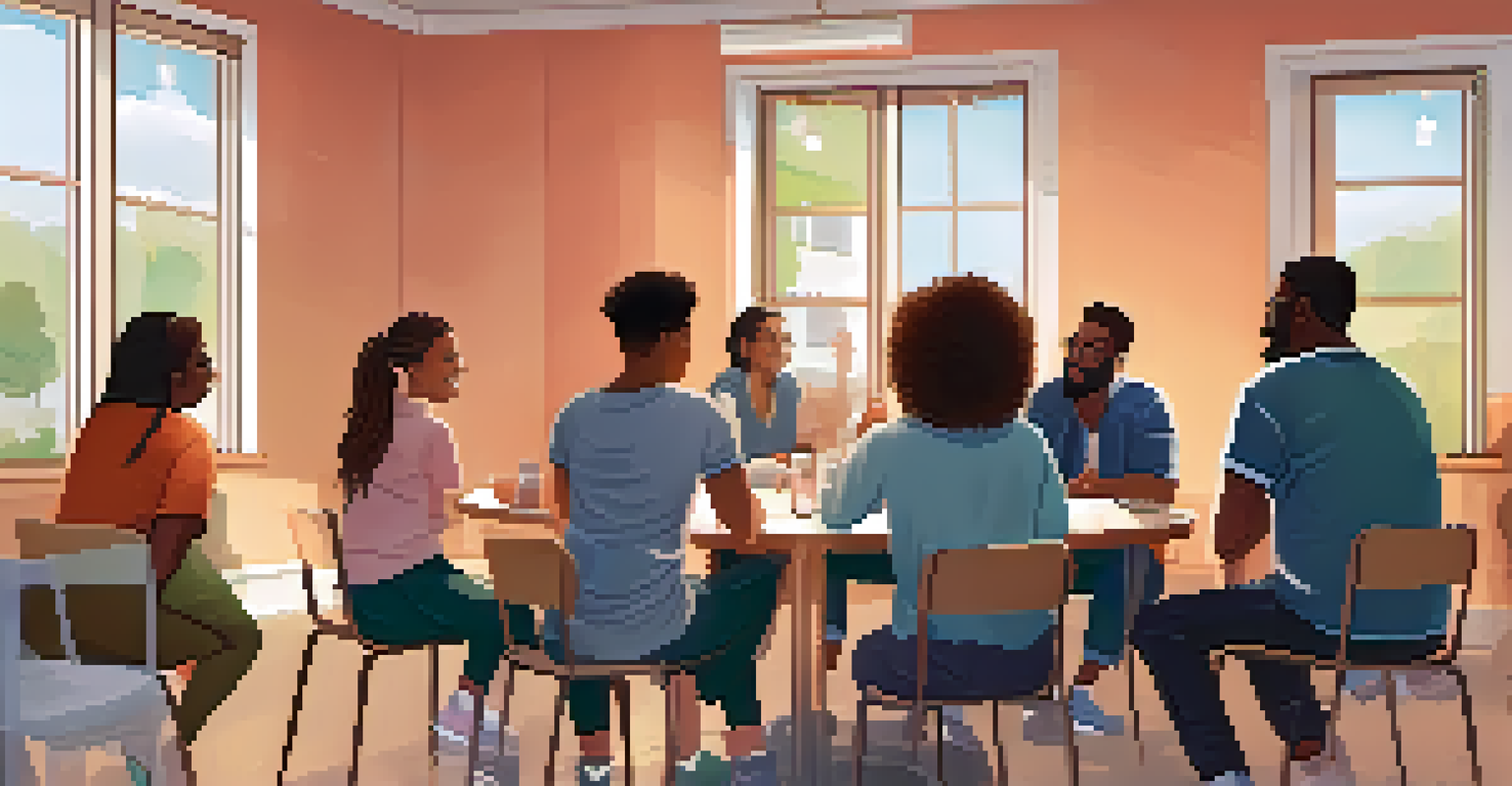Mental Health Hotlines and Resources for Austin Residents

Understanding Mental Health Hotlines and Their Importance
Mental health hotlines serve as a crucial lifeline for individuals in crisis. They provide immediate support and guidance, often at the most critical moments. Just like a friend you can call when times are tough, these resources offer a listening ear and professional advice.
The greatest weapon against stress is our ability to choose one thought over another.
In a bustling city like Austin, where life can sometimes feel overwhelming, knowing where to turn for help is essential. Mental health hotlines are staffed by trained professionals who can assist with a range of issues, from anxiety and depression to more urgent crises. Their goal is to help you navigate your feelings and find the resources you need.
By reaching out to a hotline, you can talk openly without fear of judgment. This is a safe space where you can express your thoughts and emotions, which is a vital step in taking care of your mental health.
Local Austin Hotlines: Immediate Support Options
Austin is home to several mental health hotlines that cater specifically to its residents. For instance, the Austin Travis County Integral Care Crisis Hotline is available 24/7, providing support for those in crisis. It's like having a friend available at any hour, ready to listen and help.

Another great resource is the National Suicide Prevention Lifeline, which is accessible for anyone in need, including Austin residents. This hotline connects you to trained counselors who can help with suicidal thoughts or emotional distress, ensuring that no one feels alone in their struggles.
Mental Health Hotlines Save Lives
Mental health hotlines provide immediate support and guidance for individuals in crisis, helping them navigate their feelings.
By having these local resources at your fingertips, you can reach out for help at any moment, reinforcing the message that seeking support is a sign of strength, not weakness.
Crisis Text Line: Support via Text for Austin Residents
For those who prefer texting over talking, the Crisis Text Line offers an incredible alternative. By texting 'HOME' to 741741, Austin residents can connect with trained crisis counselors who provide support via text. This service is perfect for anyone who may feel more comfortable communicating in writing.
You don’t have to control your thoughts. You just have to stop letting them control you.
Texting can often feel less intimidating than a phone call, especially during moments of high anxiety. The anonymity of texting allows individuals to express their feelings freely and receive immediate guidance without the pressure of a face-to-face conversation.
The Crisis Text Line operates 24/7, ensuring that help is always just a text away, making it an invaluable resource for those in need.
Community Resources: Support Beyond Hotlines
While hotlines are vital, community resources in Austin also play a significant role in mental health support. Organizations like the Mental Health Association of Texas offer various programs and services designed to help residents cope with mental health challenges. Think of these organizations as a safety net, providing multiple layers of support.
From counseling services to educational workshops, these community resources aim to empower individuals and foster a sense of belonging. They not only address immediate needs but also work towards long-term mental wellness.
Local Resources Enhance Support
Austin residents can access various local hotlines and community organizations that offer vital mental health services.
Engaging with local mental health organizations can create a sense of community, reminding you that you’re not alone in your journey.
Online Resources: Finding Help from Home
In today’s digital age, online resources are a fantastic option for those seeking mental health support from the comfort of their homes. Websites like 7 Cups and BetterHelp provide access to online therapy and chat support. It’s like having a therapist in your pocket whenever you need one.
These platforms often feature a range of services, from chat rooms where you can connect with others to professional therapy sessions via video calls. This flexibility allows you to choose what feels most comfortable for you, making mental health support more accessible than ever.
Utilizing online resources can be especially beneficial for those who may not have easy access to in-person services or prefer a more private approach.
Navigating Mental Health Apps: Tools for Austin Residents
Mental health apps are becoming increasingly popular, providing tools to manage mental well-being on-the-go. Apps like Headspace and Calm offer guided meditations and mindfulness exercises, helping users cultivate a sense of peace. Think of these apps as personal wellness coaches, available anytime you need a moment of calm.
These applications are designed to support various aspects of mental health, from reducing anxiety to improving sleep quality. By incorporating these tools into your daily routine, you can take proactive steps toward better mental health.
Tech Tools for Mental Wellness
Mental health apps and online resources provide convenient options for managing well-being, making support more accessible.
Using mental health apps can empower you to take charge of your well-being, offering strategies and exercises that fit into your lifestyle.
Building a Support Network: Friends, Family, and Professionals
While hotlines and resources are essential, building a support network with friends and family is equally important. Sharing your thoughts and feelings with loved ones can provide comfort and understanding, creating a strong foundation for mental wellness. Think of it as having your own personal cheerleaders in times of need.
Additionally, mental health professionals play a crucial role in this network. Regular therapy sessions can provide guidance and coping strategies tailored to your unique circumstances. This professional support complements the love and understanding of friends and family.

By combining these resources, you can create a robust support system that addresses both immediate needs and long-term mental health goals.